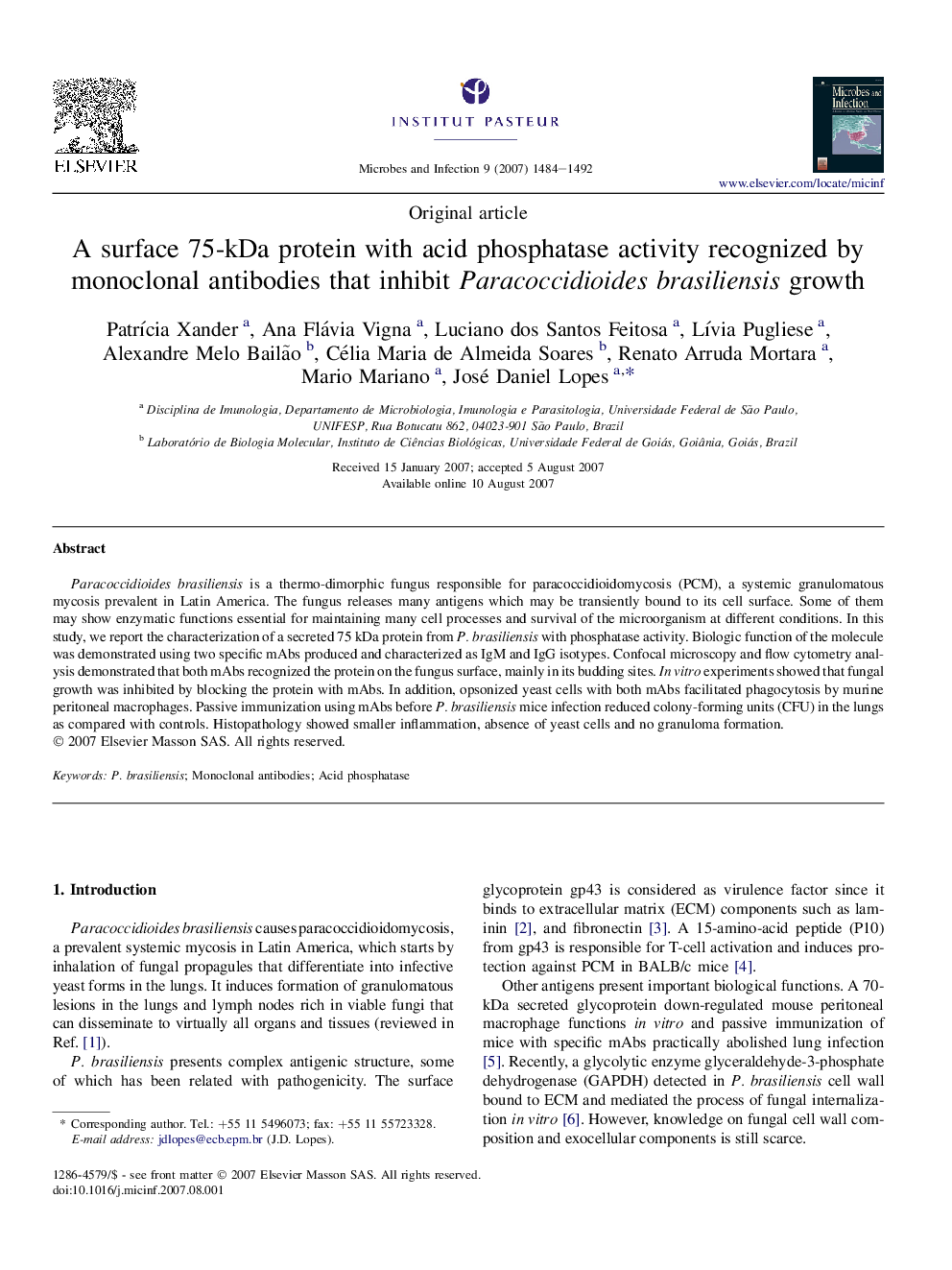| Article ID | Journal | Published Year | Pages | File Type |
|---|---|---|---|---|
| 3415501 | Microbes and Infection | 2007 | 9 Pages |
Paracoccidioides brasiliensis is a thermo-dimorphic fungus responsible for paracoccidioidomycosis (PCM), a systemic granulomatous mycosis prevalent in Latin America. The fungus releases many antigens which may be transiently bound to its cell surface. Some of them may show enzymatic functions essential for maintaining many cell processes and survival of the microorganism at different conditions. In this study, we report the characterization of a secreted 75 kDa protein from P. brasiliensis with phosphatase activity. Biologic function of the molecule was demonstrated using two specific mAbs produced and characterized as IgM and IgG isotypes. Confocal microscopy and flow cytometry analysis demonstrated that both mAbs recognized the protein on the fungus surface, mainly in its budding sites. In vitro experiments showed that fungal growth was inhibited by blocking the protein with mAbs. In addition, opsonized yeast cells with both mAbs facilitated phagocytosis by murine peritoneal macrophages. Passive immunization using mAbs before P. brasiliensis mice infection reduced colony-forming units (CFU) in the lungs as compared with controls. Histopathology showed smaller inflammation, absence of yeast cells and no granuloma formation.
